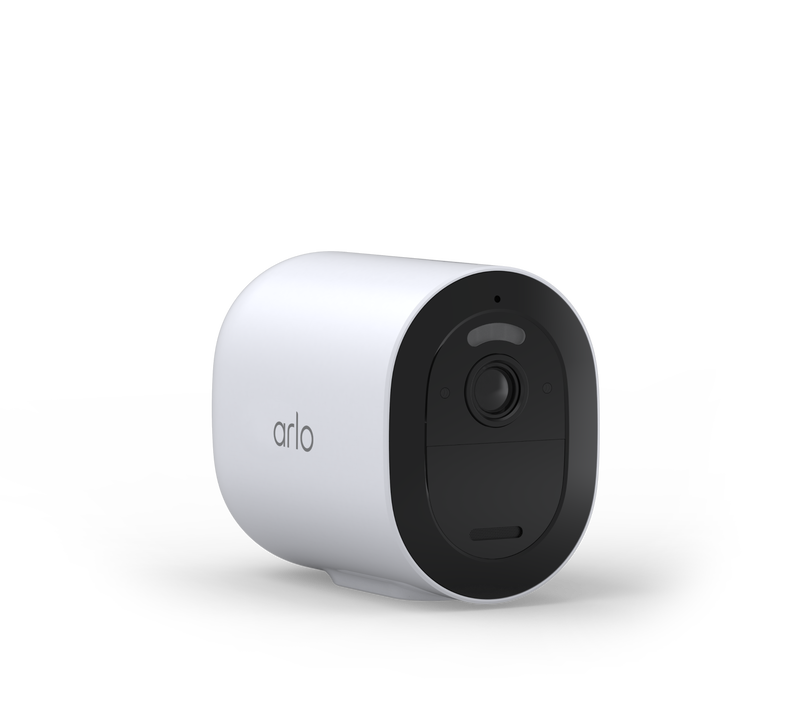Arlo Law Enforcement Guidelines
Last Updated: November 15, 2021
Arlo has prepared these guidelines for use by law enforcement seeking Arlo subscriber information. These guidelines are for informational purposes and are not a commitment by Arlo to take any specific action in given circumstances beyond what is required of Arlo by applicable law. The guidelines create no contractual obligation, and they may be changed or updated by Arlo at any time. Arlo reserves all of its rights.
Arlo is committed to respecting the privacy and other rights of our subscribers. Accordingly, Arlo subscriber information will not be released absent valid legal process.
Requirements for Legal Process
Arlo requires valid and sufficient legal process before it will disclose subscriber information.
Arlo generally accepts service of search warrants and related legal process electronically. Warrants can be served by emailing legal@arlo.com from the official email address of the requesting government or law enforcement agency. Arlo provides this email address as a convenience and does not waive its rights to insist on personal or proper service of legal process.
Arlo and its records custodians are located in California. State court subpoenas and orders from courts outside of California that are not search warrants must be domesticated in California using the Uniform Act to Secure the Attendance of Witnesses from Without a State to compel a response from Arlo. See Cal. Penal Code § 1334, et seq.
To be effective, legal process seeking information about an Arlo subscriber account generally must identify the subscriber account by providing the email address associated with the Arlo account or the serial number of the Arlo camera or base station associated with the account. A name and physical address may not be sufficient for Arlo to locate an Arlo account. If Arlo cannot uniquely identify an Arlo account based on your request, it will not be able to preserve information or produce records.
Additionally, all warrants must meet the probable cause requirement found in the Fourth Amendment, generally meaning that there is a reasonable basis for believing that evidence of a crime is present on Arlo’s servers. Arlo also reviews legal process to ensure facial validity under applicable laws and regulations, such as the Stored Communications Act, 18 U.S.C. § 2701, et seq., and the California Electronic Communications Privacy Act, Cal. Penal Code § 1546, et seq. All legal process and requests for subscriber information must:
- be narrowly tailored,
- specifically identify the account at issue, and
- specifically identify the information sought.
Arlo cannot respond to vague, invalid, or informal requests. Arlo also reviews all legal process and requests to ensure they are not objectionable for other reasons, such as requests that seek confidential, proprietary information, or privileged information.
Arlo will not produce customer videos in response to subpoenas, including without limitation private party subpoenas and grand jury subpoenas.
What records does Arlo maintain?
Arlo was designed not to keep the personal information of its subscribers if such information is not needed to provide Arlo services – privacy by design. Therefore, Arlo generally does not have much information about our subscribers beyond basic account information and the videos in their account, if any. Subscriber information that may be available to Arlo include:
Retail information. This includes information regarding purchases, refunds, and other consumer transactional information regarding Arlo devices purchased on arlo.com. Arlo sells most of its products through retailers and distributors, and Arlo does not have information from those entities about who purchased the Arlo products.
Basic subscriber information. Depending on the particular customer and Arlo account associated with the customer, this may include information such as an Arlo subscriber’s name, email address, physical address, registered products, services (i.e., Arlo subscription plan), and billing information. Notably, the only information that Arlo requires to establish a valid Arlo account is an email address. Arlo does not otherwise verify the names and physical addresses associated with an Arlo account, which may a) be inaccurate or b) not be input whatsoever by the Arlo customer. This is the reason Arlo generally cannot locate an Arlo account via a name or physical address.
Other non-content information. This may include non-content transactional information (such as account settings) and limited (both in content and time) activity logs.
Communications content. This may include the videos stored in a subscriber’s Arlo account. Importantly, Arlo does not store content indefinitely. Arlo permanently and immediately deletes videos after a subscriber deletes a video, or after expiration of the applicable retention period for the subscription plan of the subscriber (currently up to 30 days). Arlo cannot recover deleted content.
Arlo may produce basic subscriber information and retail information in response to a valid and properly served subpoena, search warrant, or other court order. Arlo will produce videos only in response to a valid search warrant.
Notice to Arlo Subscribers
Arlo reserves its right to provide notice of legal process seeking a subscriber’s information to that subscriber unless: (a) Arlo is prohibited from doing so by statute or court order; (b) there is an emergency situation where time is of the essence; (c) notice could be detrimental to Arlo or Arlo subscribers; and/or (d) where Arlo does not have the subscriber contact information.
Preserving Records Pending Legal Process
Without a valid preservation request, the Arlo system only retains content for the time period specified by the applicable subscription plan or until a customer manually deletes videos from her Arlo account. Arlo does not retain content for law enforcement purposes unless it receives a valid preservation request.
Consistent with 18 U.S.C. § 2703(f), Arlo will preserve records for up to 180 days pending issuance of legal process if it receives a preservation request emailed to legal@arlo.com. All preservation requests must specifically identify the records to be preserved, the time period for which they are to be preserved (no longer than 90 days per request), and that legal process is forthcoming. Preservation requests should be as narrow as reasonably possible, and consistent with 18 U.S.C. § 2706.
Consent-based Requests
As provided above, Arlo requires legal process before disclosing records and therefore does not disclose records based on the consent of a subscriber. Arlo subscribers can log into their accounts to access and produce their own information at any time.
Witness Testimony
Arlo does not provide expert witness testimony and does not have witnesses on call who are available to testify. Upon request, Arlo can provide a certificate of authenticity.
Cost Reimbursement
Consistent with § 2706(a) of the Stored Communications Act, Arlo may seek reimbursement costs that have been directly incurred in searching for, assembling, and preparing information for production.
Non-U.S. Law Enforcement
Arlo and its records custodians are located in the United States and thus Arlo complies with U.S. law with respect to requests for subscriber data. Accordingly, a Mutual Legal Assistance Treaty request or letter rogatory may be required to compel the disclosure of the contents of an Arlo subscriber’s account. Where the Arlo cameras and associated services are provided to the subscriber by Verisure Arlo Europe DAC, the owner of Arlo’s European commercial operations, Verisure Arlo Europe DAC may respond at its discretion to compulsory requests from European governmental entities that have jurisdiction over Verisure Arlo Europe DAC.
















